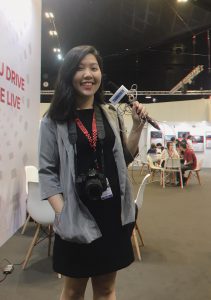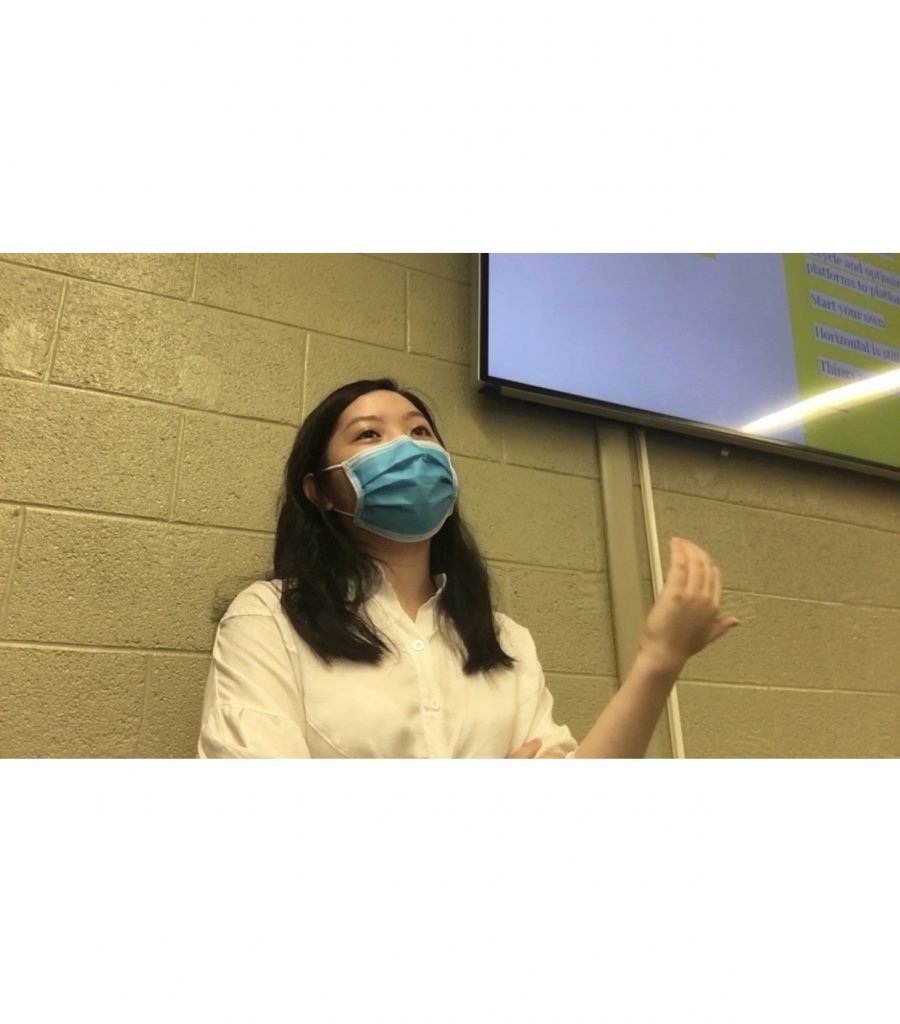 Q: Uyen, would you start by telling a little bit about your experience in journalism in Asia and what inspired you to pursue graduate school?
Q: Uyen, would you start by telling a little bit about your experience in journalism in Asia and what inspired you to pursue graduate school?
A: I have been working as a journalist for almost 7 years covering, initially, education and youth news, and now international affairs, mostly via video production. I was a Singapore- and Malaysia-based correspondent for a half year (2016) and one year (2017-2018), respectively. Some of my highlighted works include coverage of Kim Jong-nam murder case, two Trump-Kim summits, the Malaysia General Election 14, and two U.S elections. Currently, I am a first-year Master’s student in Journalism and Mass Communications at Kansas State University, as well as a U.S-based correspondent for Thanh Nien newspaper, where I have worked since 2016. One of the reasons that drove me to graduate school is the eagerness to learn deeply and an appreciation for the significance of research-based evidence. Working as a reporter, sometimes I find it difficult to prove or verify something without facts or figures, which I can learn from any kind of research.
Q: The 1856AA fact checking project is awesome! Can you tell us how you came up with the idea and how you manage the project? How do you find the stories you investigate?
A: Apart from my professional career, I also have interests in projects relating to media literacy and civic engagement. It is the deciding factor for me and my co-founder, Dat Tran, to launch the 1856AA initiative last October. We both have backgrounds in journalism and communication professionally and academically. Two main activities of the project are fact-checking and sharing research and theories regarding journalism and communication. Normally, we will identify controversial and popular topics circulated on the internet, or harmful posts, to factcheck. Recently, we have received multiple requests to factcheck particular stories as well. For the research and theory sharing, we choose from studies we expose and find them interesting to introduce. We are developing other sections such as media practices or civic engagement to create discussion platforms. At the moment, we are a two-member team and occasional collaborators for translation (from pieces not in Vietnamese or English) or Vietnam-based activities (since both founders are studying in the U.S).
Q: It’s so cool that you will present at this year’s ICA! What work will you present there?
A: Our topic is about examination of media privacy under Vietnamese practitioners’ perspectives, attitude, subjective norms, and intention, based on the Theory of Planned Behaviors. The study aims to identify factors influencing journalists’ decision on whether to publish the personal information or not, under multiple situations, particularly amid COVID-19 when contact tracing is an effective tool to contain the spread.
We are presenting another paper at AEJMC this August about how Vietnamese newspapers framed COVID-19 at the initial stage.
Q: Do you consider yourself a “news literacy” educator? If so, what does that mean to you? If not, how do you see your role as an educator in the journalism and news media space?
A: I do not dare to call myself an educator (haha) but rather a practitioner and researcher of news literacy. What I have tried to do since 2017 is raise awareness and provide information on media literacy to people, especially my community. I spent some time attending conferences about media in different countries and sharing through my social media and projects, and 1856AA is one of them. To me, even if my work is beneficial for one person or makes them rethink or doubt information before sharing it, it motivates me to continue. In fact, many individuals have reached our project or say to me that they found our work useful and necessary. Is it possible for us to receive a little credit 😂?
Q: In your role as a teaching assistant at KSU, what are some things that surprise you about the way journalism students are thinking about the purpose and responsibilities of news today?
A: At KSU there is a large focus on how to localize newspapers and to highlight their role within a community. Our students and colleagues are focusing on local reporting that influences the community directly. In that situation, the newspaper becomes a platform for citizens and authorities to raise their voice, then eventually find solutions for particular issues. This is kind of lacking in Vietnam, where local news organizations are overlooked, and people tend to look at bigger issues, which technically cannot be solved in one or two days, rather than starting from the root, or bottom-up approach. In sum, community and solution-based newspaper notion fascinates me.
Q: What would you like to do after you complete your graduate research?
A: I am planning to pursue a PhD in journalism and mass communications with the encouragement of my parents, who always support me in furthering my education. At the same time, I still work with my newspaper as a correspondent and run my projects in media literacy and civic engagement.
Q: What do you think is most important for journalists and for non-journalists to know about news media today?
A: News is becoming polarized, just as the world is. Somehow, the neutrality of news is not prioritized anymore. What we, both journalists and non-journalists, need to equip is media literacy knowledge. It can start with a simple question “whether the information we just absorb is correct or not” and then the following questions are who creates it, why we get the information, how the news is constructed… Our 1856AA project has one significant quote that “Half the Truth is often a great Lie”.
Q: Where can we learn more about the work you are doing?
A: I am running two projects, one is 1856AA, the other is Global Opportunities for Vietnamese, where I share international scholarships, fellowships, or conferences, for youngsters.